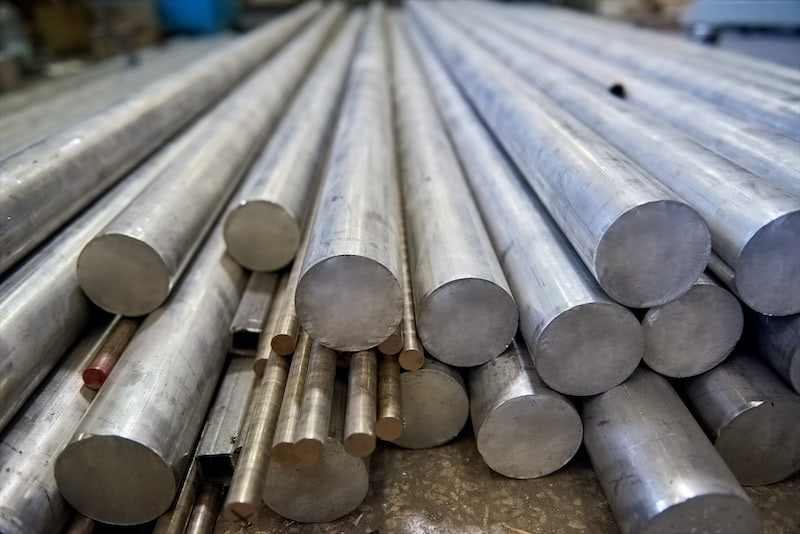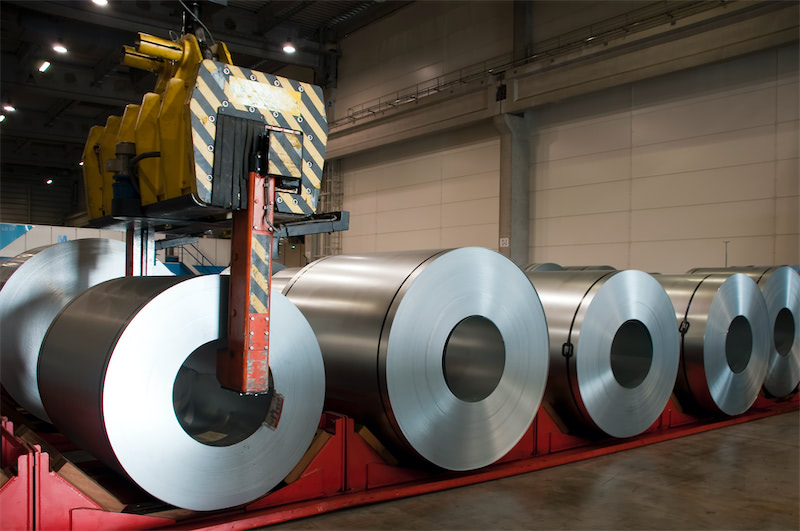The Rapid Development of India's Steel Industry Drives Continuous Growth in Coke Imports
On December 26, the Indian government issued an order to impose a six-month import restriction on low-ash metallurgical coke, a raw material for steelmaking, starting from January 1, 2025, which will automatically terminate on June 30, 2025.
As early as April 2024, the Directorate General of Trade Remedies (DGTR) under the Ministry of Commerce had proposed implementing quotas on imports from major coke-supplying countries, including Poland, China, Indonesia, Japan, and Switzerland, aiming to protect domestic metallurgical coke producers from the impact of surging imports. The proposal set country-specific quotas to safeguard domestic suppliers of low-ash metallurgical coke, with an annual import cap of 2.85 million mt.
Major steel manufacturers, including JSW Steel and ArcelorMittal Nippon Steel, opposed this move, arguing that it would hinder India's steel production. According to data from the Ministry of Coal, India imported a total of 3.96 million mt of coke in the 2023-24 fiscal year, up 9% YoY. The rapid growth in India's crude steel production has driven the demand for imported coke.
Source: Ministry of Coal, SMM
Under India's Coke Import Quota, Imports Mainly Come from Poland and Colombia
Source: WITS, DGTR, SMM, Calendar Year 2023
In 2023, India imported a total of 3.84 million mt of coke, with approximately 920,000 mt from Poland, accounting for the largest share at 24%. This was followed by about 750,000 mt from China, accounting for 20%. Indonesia and Colombia were also major sources of India's coke imports.
The newly implemented coke import restriction policy sets specific quotas for each country, limiting imports in H1 2025 to 713,600 mt per quarter. Specifically, the total import quota for H1 2025 is approximately 1.427 million mt, with Poland allocated about 510,000 mt, the largest share at 35%; Colombia about 250,000 mt; Japan about 210,000 mt; Australia 51,000 mt; China 79,000 mt; Indonesia 66,000 mt; and Russia 89,000 mt. Under this restriction, India's coke imports will mainly come from Poland, Colombia, and Japan. For H1 2025, the import quota for coke from China is 79,000 mt. On a YoY basis, in H1 2024, China's coke exports to India totaled 650,000 mt. This restriction will significantly reduce China's coke exports to India. However, from the perspective of China's coke exports by country, the impact is relatively limited.
China's Coke Exports to India Account for About 11%, and India's Coke Import Quota Has Limited Impact on China's Coke Exports
Source: Customs, SMM
Customs data shows that from January to November 2024, China's coke exports totaled 7.77 million mt, of which 890,000 mt were exported to India, accounting for 11% of China's total coke exports. Data from recent years shows that during the period from 2016 to 2020, the proportion of China's coke exports to India gradually declined from a peak of 27% to about 11%. After a brief rebound, it has again shown a downward trend, currently maintaining a share of around 11%.
Meanwhile, the proportion of China's coke exports to Southeast Asian countries has been increasing. From January to November 2024, China's coke exports to Indonesia, Malaysia, and Vietnam accounted for about 47% of total exports, compared to only 12% in 2016. Therefore, the import quota for India's coke in H1 2025 has a limited overall impact on China's coke exports, which are still supported by demand from Southeast Asia, as well as countries like Japan and Brazil.
After the Announcement of India's Coke Import Quota, Australian Coking Coal FOB Prices Temporarily Surged
However, due to the expectation that India's newly introduced metallurgical coke import quota will intensify demand for Australian coal, local coke producers are preparing to increase production, leading to a surge in coking coal prices in early January. On January 2, a major Australian miner finalised a deal for 75,000 mt of Goonyella premium mid-volatility hard coking coal at $203.4 FOB, with a shipping period from February 1 to 10. According to market participants, this represents a significant increase compared to the pre-holiday price of $190 FOB, reflecting a short-term optimistic market outlook.
This is mainly because India's coking coal imports primarily come from Australia. Following the announcement of the coke import quota, the market expects an increase in India's domestic coke production, driving a temporary rebound in Australian coking coal prices. However, the sustainability of this trend remains to be seen.
Source: SMM, Public Information Collection
Over Half of India's Coking Coal Imports Come from Australia
In the 2023-24 fiscal year, India's coking coal imports exceeded 58 million mt, up 3.7% YoY. With India's crude steel production expected to continue growing, the demand for coking coal imports is also expected to increase.
In terms of import sources, Australia is India's largest supplier of coking coal. In the 2023-24 fiscal year, 60% of India's coking coal imports came from Australia. This is partly due to the steady growth in domestic steel demand and production, and partly due to the decline in Australian coal prices, which has boosted India's imports of Australian coking coal. In the short term, the proportion of India's coking coal imports from Australia is expected to remain high.
However, in the long term, as India actively increases its domestic coking coal production and diversifies its import sources, such as increasing imports from Russia and the US and attempting to import Mongolian coking coal, it is expected to reduce its dependence on Australian coking coal.
*This report is an original or compiled work of SMM Information & Technology Co., Ltd. (hereinafter referred to as "SMM"). SMM legally owns the copyright and is protected by the Copyright Law of the People's Republic of China and other applicable laws, regulations, and international treaties. Without written permission, no part of this content may be reproduced, modified, sold, transferred, displayed, translated, compiled, or disseminated, nor may it be disclosed to third parties or licensed for use by third parties in any form. Upon discovery of any infringement, SMM will take legal action to pursue liability, including but not limited to demanding contractual breach liability, restitution of unjust enrichment, and compensation for direct and indirect economic losses.
The content of this report, including but not limited to information, articles, data, charts, images, audio, video, logos, advertisements, trademarks, trade names, domain names, layout designs, and any or all information, is protected by the Copyright Law of the People's Republic of China, the Trademark Law of the People's Republic of China, the Anti-Unfair Competition Law of the People's Republic of China, and other applicable laws, regulations, and international treaties concerning copyright, trademark rights, domain name rights, commercial data information rights, and other rights. It is owned or held by SMM and its related rights holders. Without written permission, no institution or individual may reproduce, modify, use, sell, transfer, display, translate, compile, or disseminate this content, nor may it be disclosed to third parties or licensed for use by third parties in any form. Upon discovery of any infringement, SMM will take legal action to pursue liability, including but not limited to demanding contractual breach liability, restitution of unjust enrichment, and compensation for direct and indirect economic losses.
![Before the holiday, the black chain is unlikely to see a trend-driven market [SMM Steel Industry Chain Weekly Report].](https://imgqn.smm.cn/usercenter/zUFfM20251217171748.jpg)

![[SMM Chromium Daily Review] Inquiries and Transactions Weakened, Chromium Market Showed Mediocre Performance Before the Holiday](https://imgqn.smm.cn/usercenter/ENDOs20251217171718.jpg)
